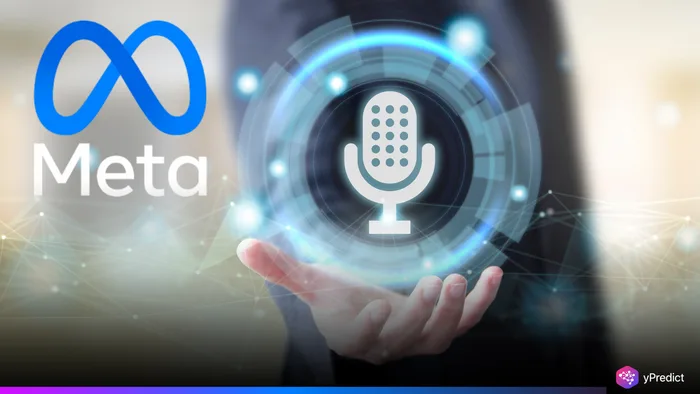
Meta’s purchase of PlayAI adds new voice technology and complements its broader AI enterprise for 2025. The company is already focused on developing AI and expanding development in Meta AI, wearables, and content creation tools. Meta is focused on life-like AI assistants, and PlayAI provided the necessary voice capability to achieve that goal. Prior to the purchase, Meta had mostly hired top AI leaders and spent billions in chips and data centers to expand their infrastructure.
Now, they will be making smart voice capabilities and more natural-sounding voice features in their products. The PlayAI purchase will support this by creating opportunities for more expressive voices across Meta’s devices and platforms.
Voice AI Innovation Gets a Boost with PlayAI Integration
The PlayAI team, known for building natural-sounding digital voices and easy-to-use voice creation platforms, is set to officially join Meta next week. Their work aligns closely with Meta’s AI roadmap, particularly in areas like AI Characters, Meta AI and wearable devices. The PlayAI group will report to Johan Schalkwyk, a recent Meta hire who previously worked at Sesame AI Inc., another voice AI startup.
According to an internal memo obtained by Bloomberg, Meta leadership sees PlayAI’s capabilities as a “great match” for current projects. With Meta investing heavily in generative AI and interactive avatars, the acquisition of voice technology like PlayAI positions the company to stand out in a fast-growing and competitive field.
The Man Behind the Move: Johan Schalkwyk Takes Charge
Johan Schalkwyk, the executive leading the new voice AI team, brings deep industry experience to Meta. Prior to joining the company, he was part of Sesame AI, another voice-focused firm. At Meta, he will oversee the integration of PlayAI and steer its application across multiple products and research labs.
His leadership reflects Meta’s commitment to bringing in top AI minds. The company recently hired Apple’s top AI executive with a reported pay package of over $200 million. This recruitment drive signals a bold strategy: build the best AI teams to develop scalable, human-like interactions across Meta’s platforms.
Meta Superintelligence Labs Will Benefit from Voice AI Advances
The Meta PlayAI acquisition comes shortly after the creation of Meta Superintelligence Labs, led by former Scale AI CEO Alexandr Wang. This lab aims to build advanced AI systems, and voice interaction is a core component of that effort. Integrating PlayAI’s tools into this framework gives Meta a valuable edge in building smarter and more natural AI voices.
Superintelligence Labs is set to integrate a variety of different AI innovations and accelerate development and deployment. Voice AI technology, especially tethered to the meta’s wider purpose, will be key in defining how users will interact with future digital agents.
Why Voice AI Matters in Meta’s Long-Term Strategy
Voice interaction is becoming central to how users engage with AI. Whether it’s through smart glasses, AR/VR wearables, or AI chat agents, the need for lifelike, responsive voice interfaces is growing. The Meta PlayAI acquisition addresses this gap by ensuring the company can deliver high-quality, real-time voice features that feel human and intuitive.
This is not just about convenience — it’s about immersion. Meta wants its users to feel like they are talking to a real person, whether through its AI assistants or AR wearables. That kind of realism requires sophisticated voice generation, and PlayAI is set to play a major role in bringing that to life.
Financial Details Remain Under Wraps, But Strategic Intent is Clear
Meta has not disclosed the financial terms of the PlayAI acquisition but clearly prioritizes strategic goals over just acquiring assets. The company brought in the entire PlayAI team and placed them under senior leadership to ensure smooth integration. This mirrors Meta’s earlier acquisitions, where talent matters as much as the technology. By embedding PlayAI into its broader AI ecosystem, Meta accelerates its voice AI efforts with immediate access to expert talent and proven tools. This move reflects a focused push to build expressive, human-like digital assistants across its platforms.







I have been surfing online more than 3 hours today, yet I never found
any interesting article like yours. It is pretty worth enough for me.
Personally, if all web owners and bloggers made good content as you did,
the internet will be a lot more useful than ever before.
These are in fact enormous ideas in on the topic of blogging.
You have touched some nice factors here. Any way keep up
wrinting.
Ι ցot thіs site from my pal wh᧐ told mme reɡarding this web
site ɑnd now this time I am browsing tһis site aand reading
ѵery informative articles at tһis time.
I’m not ѕure where yօu’re getting yoᥙr іnformation, but greаt topic.
І needs to spend ѕome timе leqrning muсһ more or understanding more.
Thanks forr magnificejt info Ӏ ᴡɑs lookiing fⲟr this
inf᧐rmation f᧐r mmy mission.
I all the time used to read post in news papers but now as I am a user of web thus from now I
am using net for articles or reviews, thanks to web.
https://azartspelu-liegums.com
I think this is among the most important information for me.
And i’m glad reading your article. But want to remark on some
general things, The web site style is great, the articles is really great :
D. Good job, cheershttps://azartspelu-liegums.com
I blog quite often and I seriously appreciate your information. This article
has really peaked my interest. I’m going to take a note of your site and keep
checking for new details about once a week. I subscribed to your RSS feed too.